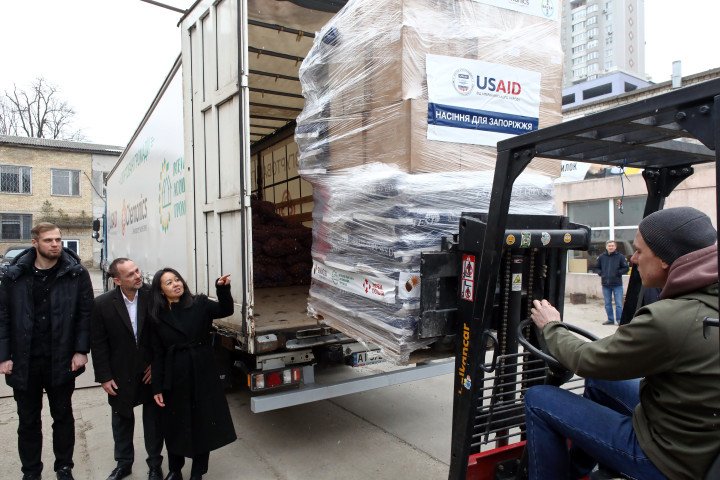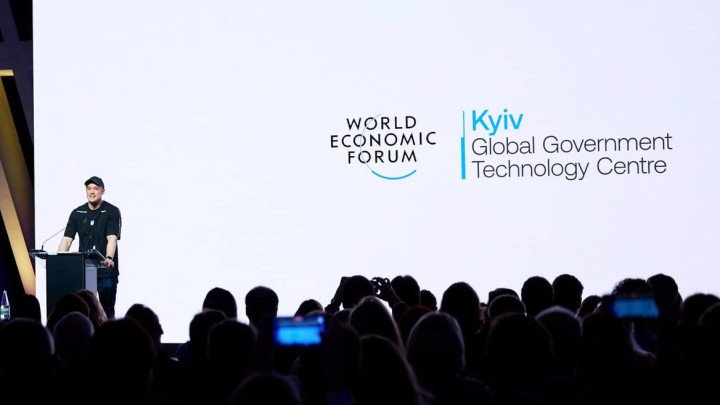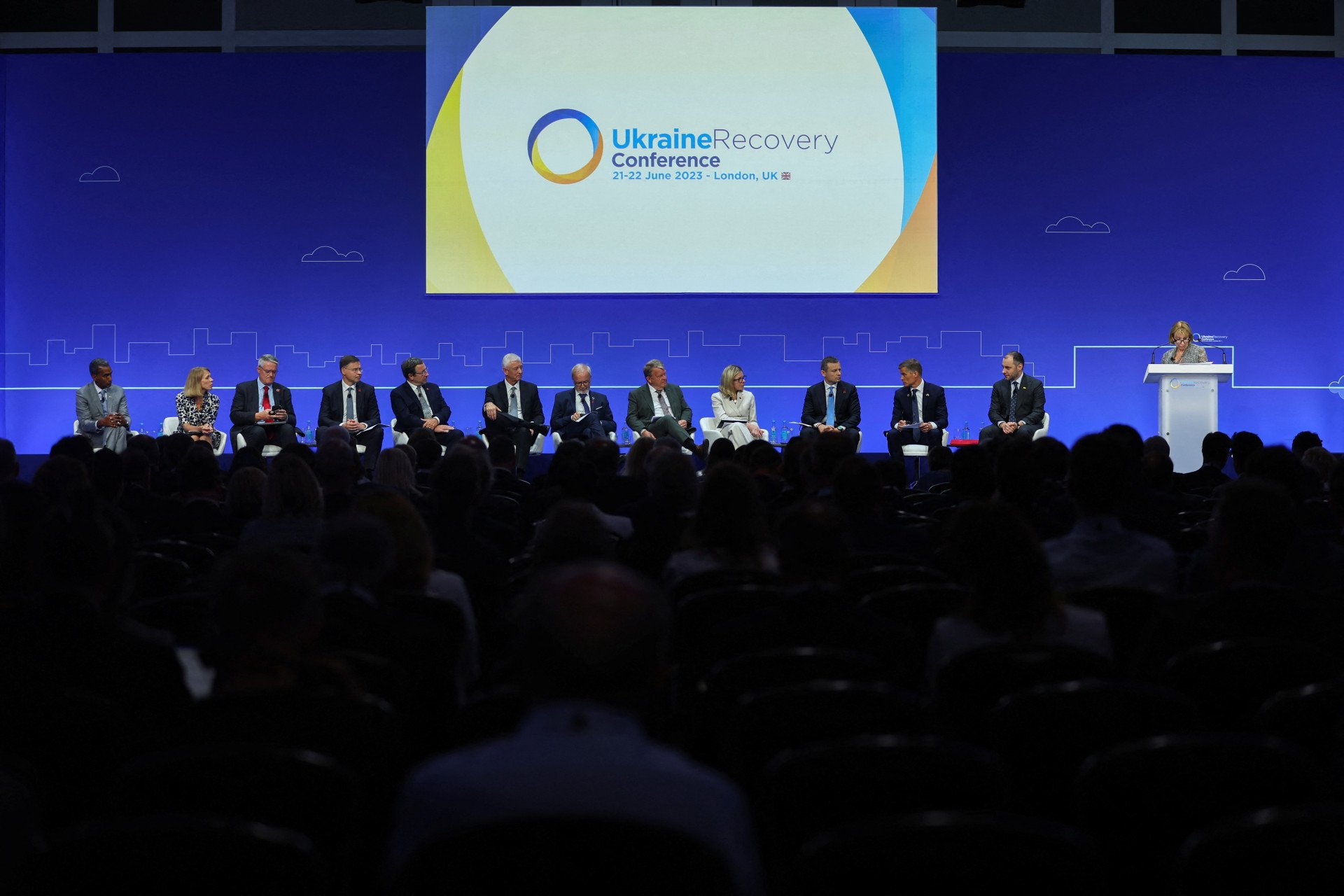- Category
- Opinion
When US Support Pauses, It Is Europe’s Moment to Step Forward

With some US support to Ukraine paused, Europe must step in to sustain vital projects and safeguard Ukraine’s resilience in the fight against Russian aggression.
Expressing concerns about the halting of US support to Ukraine is challenging—balancing the need to capture empathy without overwhelming facts or risking offense to an international audience that has already contributed enormously.
For transparency, I work as an international advisor to the Minister of Ukraine's Digital Transformation, supported by US funding. However, this is not about personal stakes. I reside in an EU-embraced, NATO-protected country, where my children attend school without the need for bomb shelters. Airplanes overhead are just that—planes, not drones or missiles. My alarm clock, not air raid sirens, wakes me in the morning.
I deeply appreciate my fortune—the ability to board a train and return to safety, but the stark reality is that millions in Ukraine lack such choices. The stalled aid will aggravate the already dire situation.

Cold numbers, harsh consequences
The USAID Ukraine homepage presents emotionless figures: $2.6 billion in humanitarian aid, $5 billion in development assistance,and $30 billion in direct budget support since February 2022.
Behind these figures lie hundreds of projects and people now in limbo.
In a country ravaged by nearly three years of war, where people are exhausted by constant uncertainty—from personal safety to basic necessities like food, heat, and electricity—this is a severe shock and three months can bend resilience built over three years.
As "stop-work" orders cascaded through email inboxes and messaging apps this weekend, my concern grew for colleagues, their projects, and the war-weary citizens they serve. The impact is already visible: Veteran Hub has been forced to close its support line to veterans and its branch in Vinnytsia. Regional information portal Grechka. Kropyvnytskyi faces cutbacks as even approved project funding will remain frozen.
The scope of impact is difficult to grasp in a country where the state budget is entirely committed to existential defense against brutal military invasion and most public services are delivered via internationally financed projects. Defense and military victory are paramount, defining the nation's very existence. Yet, the social, societal and economic fabric of Ukraine heavily relies on international support.

Ukraine's digital resilience and innovation
My area of work is digital advancement and the protection of digital infrastructure, including cybersecurity. This isn't seen as a humanitarian concern but a critical enabler of resilience and a lifeline for Ukrainians. Digital services keep people connected—not only with loved ones but with the state's financial and social benefits or emergency services—contributing significantly to Ukraine's survival during nearly three years of war. The universal state application for public services Diia has reached a record 21 million users and was recently recognized among Time magazine's best inventions in 2024. For businesses, digital platforms provide access to global markets while local operations remain shuttered.
The country has emerged as a powerful innovation hub in both military and civilian sectors, developing solutions that are efficient, fast, innovative, and cost-effective, with remarkable transparency. The Prozorro e-procurement platform exemplifies this success: in a recent defense procurement, it reduced the cost of 3,000 FPV drones from an expected UAH 135 million ($3.2 million) to just UAH 51.35 million ($1.2 million)—a 62% saving that demonstrates the platform's crucial role in maximizing the impact of limited resources.
The global community eagerly studies Ukraine's technology experience, recognizing that these innovations represent an investment in better versions of ourselves—modernized and secure government processes, resilient digital societies, and efficient defense technologies. At the end of this year, the World Economic Forum opened its second Global Government Technology Centre in Kyiv.

The need for continuity: Europe's moment
The cliché endures: Europe is slow, burdened with internal issues, and hesitant to act decisively. Yet, this moment offers Europe another opportunity to step forward.
In the Baltic States, we are accustomed to tackling challenges disproportionate to our size and being creative in addressing them. Whining has never served us well. Instead of comparing the numerical support from the US and Europe—both substantial—Europe should step forward and establish an exceptional fund to sustain these vital projects for the next 90 days.
While the EU's newly announced €148 million humanitarian aid package is welcome, it may need expansion to cover strategic investments in resilience, recovery, and other programs currently supported by USAID.
Former First Lady of Estonia and Advisor to Ukraine’s Digital Transformation Ministry
Ukraine has already begun assessing the impact—no small task for a nation prioritizing defense against daily air attacks. President Zelenskyy has emphasized supporting children, veterans, and protecting infrastructure while his office seeks consultations with American partners. However, given the scope of the incoming Administration's review, a quick resolution seems unlikely. This reality makes European support—whether collective or individual—essential.
The call for European action is growing in Kyiv. Member of Parliament Mykyta Poturaiev has suggested "creating a European-wide agency like USAID—if, of course, European taxpayers and Governments are ready to finance large-scale social projects both in and around the EU." While establishing such an agency would take considerable time, immediate solutions are possible with creative thinking.
A call for European action
While military aid remains the top priority, Ukraine's long-term resilience depends on societal sustainability and development projects—the very initiatives now at risk due to halted US support. These projects form the backbone of Ukraine's wartime survival, ensuring that people can access essential services, economic opportunities, and digital infrastructure that keeps the country running even amid daily deadly attacks.
Europe does not need to build a new aid mechanism from scratch. The European Commission, in collaboration with the European Investment Bank, could leverage the Ukraine Facility Mechanism to sustain USAID-supported projects for the next 90 days. Key European countries—Germany, France, the Netherlands, Poland, and the Baltic States—could step in with direct financial assistance, drawing from unspent aid allocations and emergency reserves. The priority now is not just funding but speed—without immediate action, vital projects could be lost, and rebuilding trust in Western partners will be even harder.

Private sector involvement can also help bridge the gap, as European companies and international donors have the opportunity to sustain cybersecurity, innovation, and e-governance projects through co-investment or emergency grants, ensuring that critical initiatives do not collapse in the interim.
This is not just about Ukraine; it is about Europe's credibility, security, and strategic foresight.
Former First Lady of Estonia and Advisor to Ukraine’s Digital Transformation Ministry
Weakening Ukraine's resilience undermines Europe's own stability, making it more vulnerable to external threats. European leaders now face a defining moment—again. They can act immediately, proving that Europe is capable of leadership in times of crisis and reaffirming its commitment to Ukraine's future. Or they can hesitate, allowing hard-earned progress to unravel and weakening Ukraine's ability to resist aggression, sending the wrong signal to adversaries watching for cracks in Western resolve.
Ukraine stands as Europe's frontline defense against Russia, and a pause in support is not an option. This is a moment that demands action—not just as a moral duty, but as a strategic necessity. Time is of the essence.
-af81c26015dfd8a5ba94ea94254c2d6c.jpg)
-2c683d1619a06f3b17d6ca7dd11ad5a1.jpg)

-da3d9b88efb4b978fa15568884ef067f.jpg)
-73e9c0fd8873a094288a7552f3ac2ab4.jpg)
-f3bede69822b36ac993a6cd5b65014f9.png)


